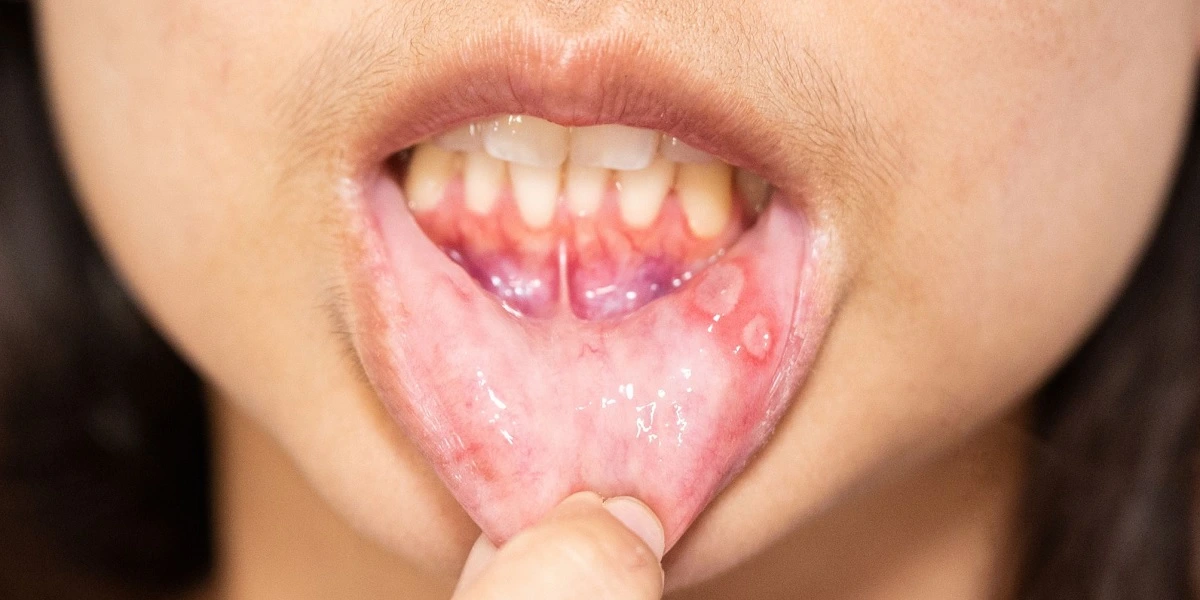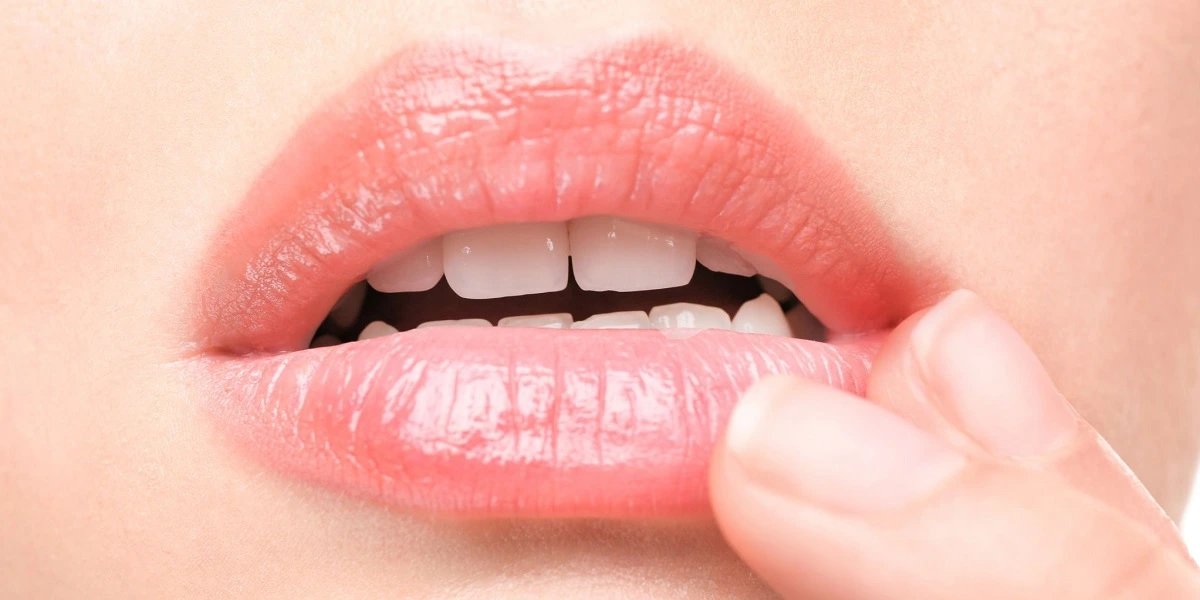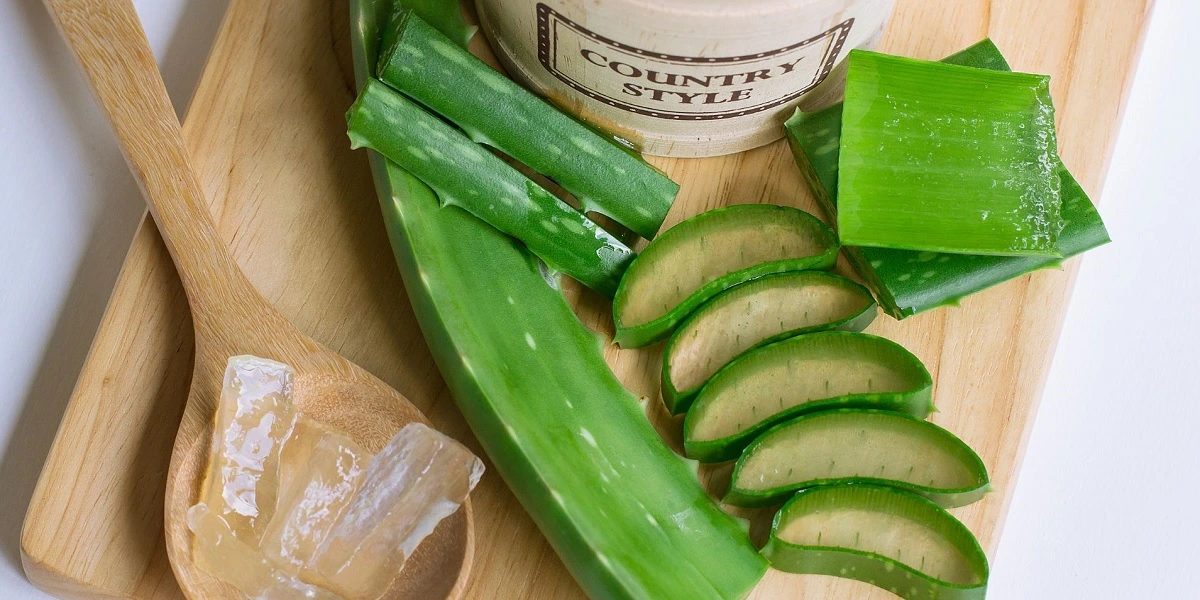Last Updated on: 10th March 2025, 12:34 pm
Canker sores are a common problem that can significantly affect a person’s quality of life. In this article, we’ll explore what they are, what causes them, and how you can manage them. Understanding canker sores is crucial because, although they are not usually serious, they can be very annoying.
What are Canker Sores?
Canker sores are small ulcers that form in the mouth. They are generally white or yellow with red edges and can appear on the tongue, gums, and lips. They are not contagious but they can cause a lot of pain, making activities such as eating and speaking difficult.
If you’ve ever had a burning sensation in your mouth after drinking sour juice or eating something salty, chances are you’ve experienced a canker sore. Although they usually heal on their own, they can sometimes reappear in the same place or in different areas of the mouth.
Prevalence of Canker Sores
Around 20% of the population has experienced canker sores at some point in their lives. Although they are more common in children and adolescents, the incidence tends to decrease with age. However, there are adults who continue to experience recurrent thrush.

Origin of the Word “Thrush”
The word “afta” comes from Greek and means “burning ulcer.” This is quite descriptive since one of the main complaints of those who suffer from them is the burning sensation they produce.
Classification of Canker Sores
Canker sores can be categorized into three main types:
-
- Take the minors: These are small ulcers, usually less than 10 mm in diameter. They heal in about a week and leave no scar.
- Major or serious: They are similar to mild canker sores but are deeper and more painful. They generally measure between 10 mm and 1 cm, and can take up to two weeks to heal, leaving a scar.
- Herpetiform or severe: These are the least common and generally affect older people. They are groups of small ulcers that can combine to form a larger ulcer. They are extremely painful and usually heal in less than a week without leaving a scar.
What Causes Canker Sores?
The exact origin of canker sores remains a medical mystery. However, several factors have been identified that may contribute to its appearance, such as:
-
- Food allergies
- Mouth injuries
- Stress
- Toothpaste with sodium lauryl sulfate
- Nutritional deficiencies
- Hormonal changes
1. Allergic Reactions and Thrush
An allergic reaction to certain foods or chemicals in oral hygiene products can be a cause of canker sores. For example, some toothpastes and mouthwashes contain sodium lauryl sulfate, which has been identified as a possible irritant for some people.
2. Relationship with Stress
Stress is another factor that can trigger the appearance of canker sores. During periods of stress, the immune system can weaken, making the body more susceptible to several conditions, including canker sores.
3. Influence of Diet
Foods such as nuts, pineapple, cheeses and spices can be irritating and contribute to the appearance of thrush. Additionally, alcohol and tobacco are also known to be irritants and could increase the risk of developing canker sores.
4. Smoking and Canker Sores
Smoking is not only a risk factor for canker sores, but it can also aggravate existing sores. Additionally, smoking increases the risk of oral cancer, making it even more important to quit if you are prone to canker sores.
5. Dental Care and Canker Sores
Poor oral hygiene and the use of poorly fitted orthodontic appliances can contribute to the appearance of canker sores. In the case of orthodontic appliances, continuous friction against sensitive areas of the mouth can cause lesions that evolve into canker sores.
6. Thrush and Immune System
People with compromised immune systems, such as those with lupus, celiac disease, or HIV/AIDS, are more susceptible to complex canker sores. These conditions can make canker sores more frequent and difficult to treat.
Differences Between Canker Sores and Cold Sores
It is crucial to differentiate between thrush and cold sores, as the latter is contagious. Cold sores usually appear outside the mouth and are filled with fluid, while canker sores are ulcers that appear inside the mouth and are white or yellow in color.

What foods can cause the appearance of canker sores?
Diet can play a role in the appearance of canker sores, although it is not the only cause. Foods that tend to cause thrush include:
-
- Nuts, especially walnuts
- Piña
- Some cheeses
- Spices and spicy foods
- Gluten
- Alcohol
- Vinegar
- Acidic foods
- Chocolate, coffee, strawberries, and eggs
Additionally, it is recommended to avoid very hot, hard, or overly seasoned foods to minimize pain (Scully, 2013, “Oral and Maxillofacial Medicine”).
Are Canker Sores Contagious?
Good news: Canker sores are not contagious. Unlike cold sores, which are caused by the herpes simplex virus and are highly contagious, canker sores do not spread from person to person. An easy way to distinguish between the two is location; Canker sores generally occur inside the mouth, while cold sores occur outside, around the lips, chin, or nostrils (Femiano et al., 2007, “Recurrent aphthous stomatitis unresponsive to treatment with acyclovir”).
Symptoms of Canker Sores
The most common symptoms include burning or tingling sensations, followed by the appearance of a red, painful bump inside the mouth. Over time, this turns into an open ulcer that is white, gray, or yellow with a red border. In severe cases, you may also experience fever, physical sluggishness, and swollen lymph nodes (Woo et al., 2017, “Recurrent aphthous ulcers: a review of diagnosis and treatment”).
How to Treat Canker Sores
Most canker sores heal on their own within one to two weeks. However, there are treatments available to speed up the healing process and relieve pain:
-
- Topical medications: Specific ointments and gels that are applied directly to the ulcer.
- Mouthwashes: made from a salt water solution or with specific medications.
- Oral medications: especially recommended for serious or recurrent canker sores.
- Laser therapy: A low-power laser is used to reduce pain and speed healing.
If canker sores are recurrent or severe, a doctor or dentist should be consulted to determine the underlying cause and receive appropriate treatment.

Natural Treatments for Canker Sores
Some natural treatments include:
-
- Aloe vera: with anti-inflammatory and regenerative properties.
- Candies to suck: based on hyaluronic acid and zinc.
- Application of ice or milk of magnesia to the sore.
It is important to consult with a professional before starting any treatment, especially if it involves supplements (Sánchez et al., 2018, “Natural Products for the Treatment of Aphthous Stomatitis”).
Why Do I Keep Getting Canker Sores?
A family history of thrush could mean you are more likely to develop them. Additionally, the recurrent presence of thrush could be a sign of another health problem and should be evaluated by a professional (Scully, 2013, “Oral and Maxillofacial Medicine”).
When to Consult a Dental Health Professional?
If you experience frequent flare-ups or severe symptoms, it is crucial to see a dentist. These symptoms may include:
-
- Large and painful canker sores
- Fever
- Rashes on other parts of the body
- Unexplained fatigue
In these cases, specific medications may be prescribed to relieve discomfort (Woo et al., 2017, “Recurrent aphthous ulcers: a review of diagnosis and treatment”).
Prevention of Canker Sores
Although there is no definitive way to prevent canker sores, maintaining good oral hygiene can help minimize the risk and discomfort.
Tips:
-
- Use soft-bristled toothbrushes.
- Avoid acidic and spicy foods.
- Use alcohol-free mouthwash.
Be attentive to stressful situations and learn stress management techniques.
Conclusion
Canker sores are a common but annoying problem that affects many people. Although they usually disappear on their own, knowing the causes and risk factors will allow you to prevent future outbreaks or, at least, better manage the symptoms.
Frequently Asked Questions
During the initial phase when a canker sore begins to develop, you may experience sensations such as burning, tingling, or roughness in the affected area of your mouth. Eating foods that additionally irritate already inflamed tissue in the mouth, such as bread crust, high-acid fruits, or spicy foods, can intensify the pain associated with canker sore.
It’s critical to understand that although canker sores and cold sores can be caused by similar factors, canker sores are not communicable,” says Dr. Varinthrej Pitis. “They are not linked to viruses or bacteria. They generally resolve autonomously in about 10 days and are not life-threatening.
Pay attention to your diet.
It is advisable to avoid foods that tend to irritate the oral cavity. Some examples are nuts, potato chips, pretzels, some spices, products high in salt, and fruits with high acid content, such as pineapple, grapefruit, and oranges. It is best to avoid any food that causes sensitivity or allergy.
Opt for salt water or baking soda solutions (mix a teaspoon of baking soda in half a glass of warm water). Use a little milk of magnesia directly on the canker sore at different times of the day. Avoid foods that are harsh, acidic or spicy, as they can intensify irritation and discomfort.
Contact Us
If you have any questions about canker sores or other dental topics, you can contact us at Channel Islands Family Dental as well as our page on Facebook. We look forward to your visit and we will make a timely diagnosis. Our dentists in Oxnard, Santa Paula, Ventura, Newbury Park, and Port Hueneme will be able to guide you toward the best treatment to take care of your health and give you back your best smile.
Bibliography
1. Cleveland Clinic. (Jun, 2022). Canker Sores. https://my.clevelandclinic.org/health/diseases/10945-canker-sores
2. Kahn A, Young C. (Apr, 2023) Painful Sensation? Could Be a Canker Sore. https://www.healthline.com/health/canker-sores
3. WebMD. (Sep, 2023). Canker Sore (Aphthous Ulcer). https://www.webmd.com/oral-health/guide/canker-sores
4. Femiano , F. , Spear , A. , Buonaiuto , C. , Gombos , F. , Cirillo , N. , & Femiano , R. (2007). Recurrent aphthous stomatitis unresponsive to treatment with acyclovir.
5. Scully, C. (2013). Oral and Maxillofacial Medicine: The Basis of Diagnosis and Treatment (3rd ed.).
6. Mayo Clinic. (Apr, 2018). Canker Sore. https://www.mayoclinic.org/diseases-conditions/canker-sore/symptoms-causes/syc-20370615
7. American Dental Association. (n.d). Oral Health topics. https://www.ada.org/resources/research/science-and-research-institute/oral-health-topics
8. Ship, J. A. (1996). Recurrent aphthous stomatitis. An update. Oral Surgery, Oral Medicine, Oral Pathology, Oral Radiology, and Endodontology, 81(2), 141–147.
9. Woo, S.-B., Sonis, S. T., & Sonis, A. L. (2017). Recurrent aphthous ulcers: a review of diagnosis and treatment. Journal of the American Dental Association, 128(8), 1202–1213.
10. Sánchez, A. R., Rogers, R. S., & Sheridan, P. J. (2018). Natural Products for the Treatment of Aphthous Stomatitis. Plant Medicine, 8(1), 23-28.



